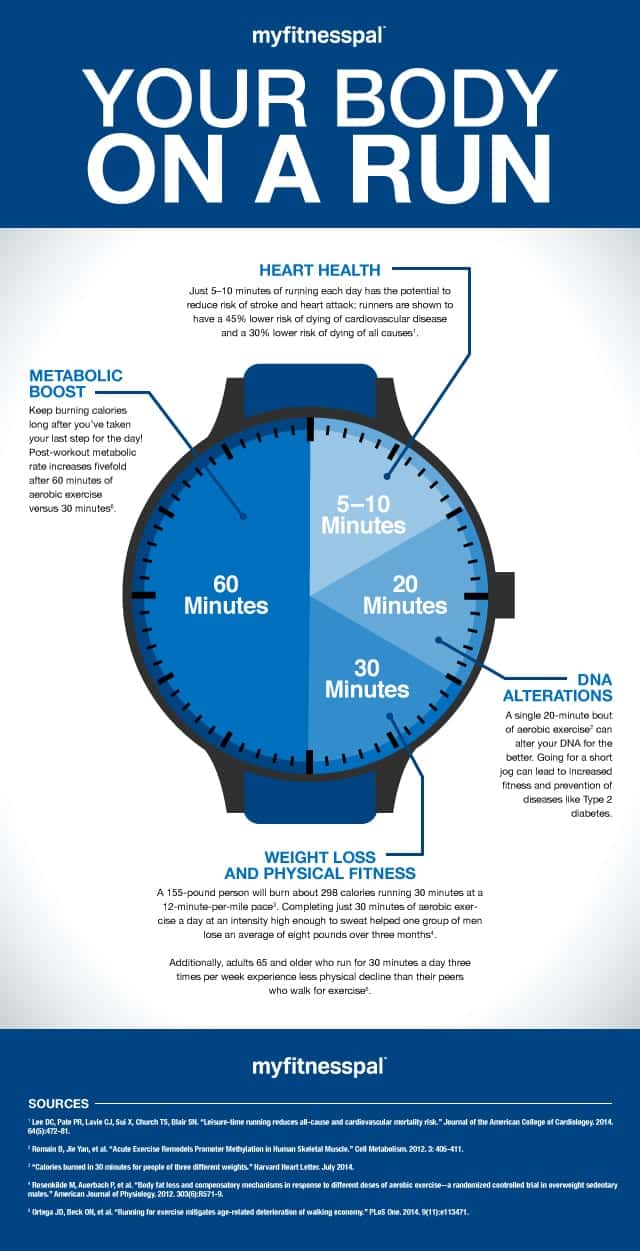The growth of the running populace in recent years is undeniable. According to Running USA’s latest State of the Sport Report, there were 8.3 million finishers in domestic 5K races in 2014, and that number is only expected to continue its upward trend. It’s no wonder when you consider the growing body of medical research that underscores the many benefits of running.
For instance, the Copenhagen City Heart Study recently found that, after keeping tabs on 20,000 Danish runners since 1976, these runners lived around six years longer than nonrunners. Interestingly, those results also showed that the joggers who traveled at around a 12-minute mile and ran 2–3 times per week (totaling 1–2.4 hours per week) actually reduced mortality the most. Put simply, you don’t need to be a speed demon or a mileage hound to garner the benefits offered by running.
But what exactly happens to your body during a run? The following infographic includes plenty of scientific backing for getting out and getting active, even for just a few minutes a day.





